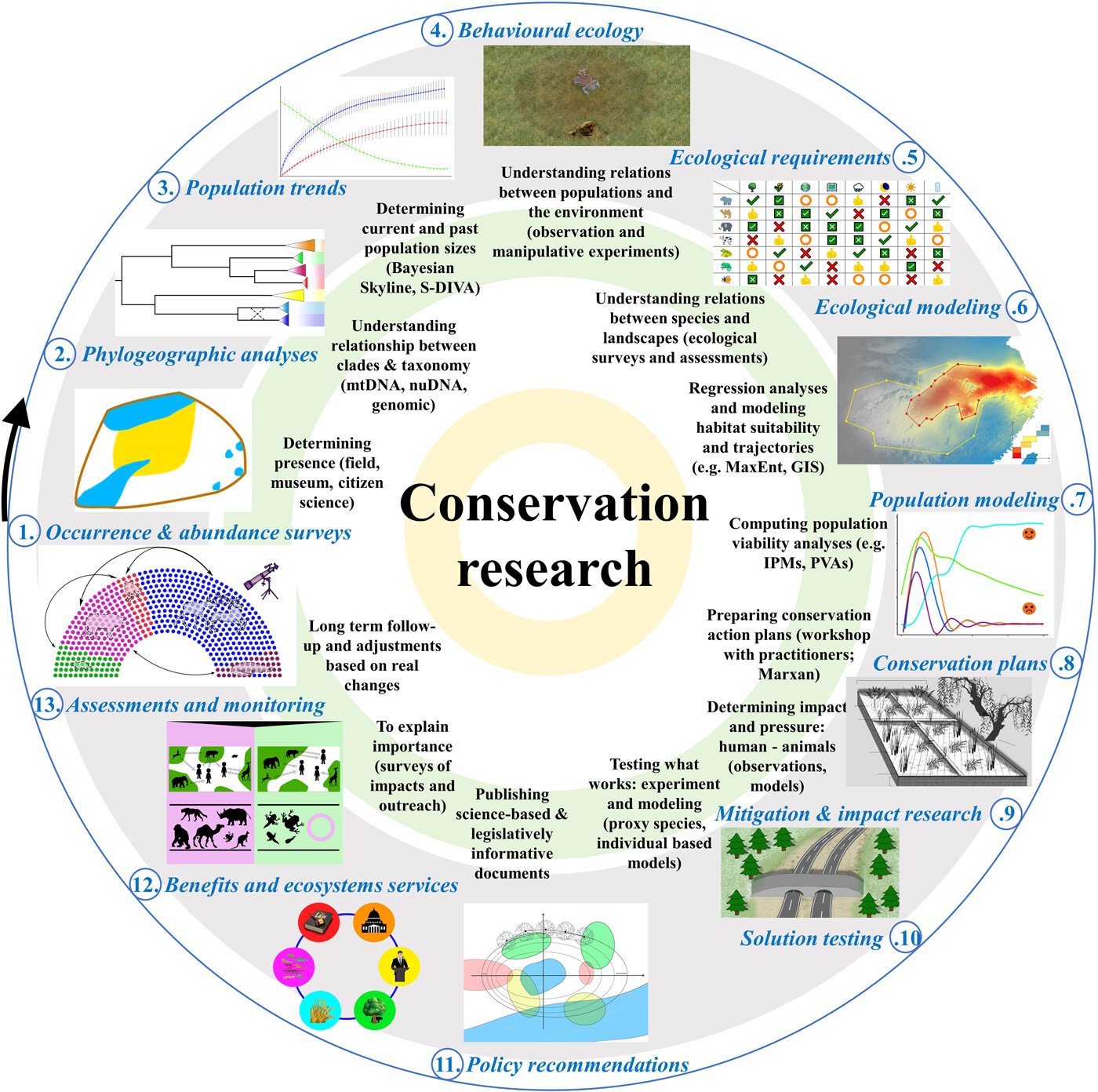Integrated conservation research is gaining significance and attracting attention due to increasing global environmental concerns. The challenge now is to clarify how the various elements of conservation research can be combined into an integrated and streamlined process.
In a study published in Integrative Conservation, a researcher proposed a 13-step framework that aimed to integrate a comprehensive range of conservation research fields, from traditional ecology and behavior to inclusive mitigation plans, policy recommendations, and monitoring processes, ensuring that conservation research results are translated into tangible conservation actions.
The 13-step framework includes occurrence surveys, phylogeographic analyses, population dynamics, behavioral ecology, ecological requirements, landscape modeling, extinction risks, conservation plans, mitigation plans, field-tested conservation, policy recommendations, benefits and ecosystem services, assessments and monitoring.
The framework provides a streamlined process for integrated conservation research that supports and enables clear conservation actions for biodiversity conservation. It provides a pathway inclusive of the full range of research techniques that are relevant to conservation, spanning from individuals to the global economic context. It highlights the interconnectedness of various knowledge domains and emphasizes the links with communities, especially those local populations that often reside among the most biodiverse ecosystems.
In addition, not all 13 steps must be conducted for a population to be protected, and specific applications may require some adjustments based on kingdoms, systems, biomes, and specific threats.
The streamlined flow of conservation research aligns with the objectives of international agreements, such as the CBD. Specifically, it can bolster efforts toward achieving the first goal of the Kunming-Montreal Global Biodiversity Framework: “Halting human-induced extinction of threatened species.”
Contact
ZHAI Yanhong
Xishuangbanna Tropical Botanical Garden
E-mail: zhaiyanhong@xtbg.ac.cn

